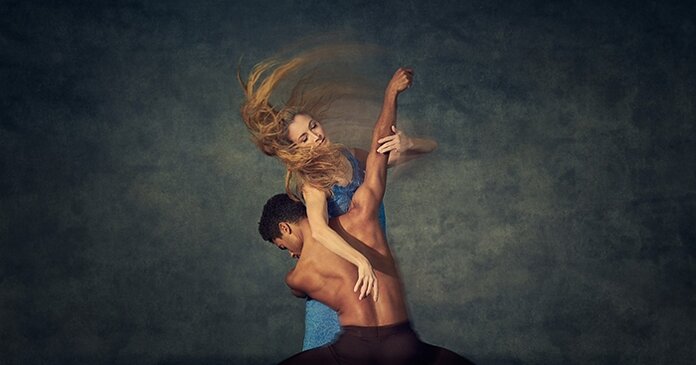Cathy Marston’s The Cellist broadcast from the Royal Opera House
Posted: June 11th, 2020 | Author: Nicholas Minns | Filed under: Film, Performance | Tags: Cathy Marston, Daniel Barenboim, Edward Kemp, Emma Lucano, Hetty Snell, Hildegard Bechtler, Jacqueline du Pré, Lauren Cuthbertson, Marcelino Sambé, Matthew Ball, Philip Feeney, Sir Edward Elgar, The Cellist | Comments Off on Cathy Marston’s The Cellist broadcast from the Royal Opera HouseCathy Marston, The Cellist, from the Royal Opera House, May 29

Cathy Marston’s The Cellist, broadcast free online from the Royal Opera House as part of its Our House to Your House series, is inspired by and based on the life of the late Jacqueline du Pré, whose remarkable career was cut short at the age of 28 by the onset of multiple sclerosis. She lived for another fourteen years offstage but it is her early life from the discovery of the child prodigy to the end of her performing career that is the subject of Marston’s ballet.
Du Pré’s emotional understanding and impassioned recording of Sir Edward Elgar’s Cello Concerto made it synonymous with her name and popularised it as a major work in the cello repertoire. The score for The Cellist, composed and conducted by Philip Feeney and performed with soloist Hetty Snell, weaves the first movement of the concerto and other themes from du Pré’s repertoire into a musical narrative that follows the storyboard that Marston and dramaturg Edward Kemp lay out as a framework for the choreography. Marston makes the pivotal decision to personify the cello as a dancer (Marcelino Sambé), rather like Fokine’s use of personification in Le Spectre de la Rose. Sambé imbues the role with both dutiful acquiescence and a touching solicitude for Lauren Cuthbertson as du Pré but the coupling has the effect of reducing Cuthbertson’s interpretive agency, the very lifeblood of her art. Although her duets with Sambé are poignant, there is a sense that instead of playing the instrument, Sambé is playing her; he dances while she mimes. Ironically, the palpable bond between musician and her instrument is most apparent in scenes where Sambé watches helpless in the background while Cuthbertson struggles with her fatigue or her inability to play.
As du Pré’s husband, Matthew Ball plays the self-assertive figure of Daniel Barenboim with charismatic elegance and charm. Like Sambé, he appears to dance Cuthbertson in a way that colours his love with ambition; Marston may be in awe of Barenboim but treats him as a dark prince. Ball’s opening solo on the rostrum ‘conducting’ Cuthbertson and Sambé in the first movement of the Elgar concerto is a highpoint in Marston’s choreographic invention; the full overhead sweep of Ball’s arm, his precise pirouettes and neat jumps on to and off the podium give the impression of someone in full command of his abilities. In the close-ups of Cuthbertson’s face — an advantage of the filmed transmission — one can see her commitment but choreographically she is overshadowed. Du Pré’s gift was her intuitive approach to making music, an internal maelstrom of forces and emotions expressed through the cello, but Marston seems reticent to let Cuthbertson dance out du Pré’s inner world with the physical sensuality and freedom with which she imbued her performances.
The early years of their relationship saw both Barenboim and du Pré flourish, but it was all too brief. With Ball and Cuthbertson running around Hildegard Bechtler’s revolving set, Marston shows effectively the relentless pace of the subsequent international tours Barenboim planned both as soloist and conductor in which du Pré was intimately involved as part of the celebrity couple.
It is clear from her biography that the seeds of du Pré’s debilitating illness were present before her whirlwind tours with Barenboim started but it is also clear that his concern for his own career did not cease with the end of hers; as a visibly weary Cuthbertson takes a break from circling the globe we see Ball continuing around the corner with undiminished energy in a devilish revoltade.
In the path from precocious child to international star, du Pré was influenced by her mother, her teachers and her musical colleagues. Apart from a sensitively conceived role for Kristen McNally as her mother and a dreamy young du Pré (Emma Lucano), the other characters seem hastily sketched and the level of characterisation, particularly in terms of mime, is weak to the point of caricature; even Ball defaults to gestures that belong more to Tybalt than to Barenboim. A multifunctional ‘chorus of narrators’ embellishes the set as anthropomorphic furniture, mirrors du Pré’s physical state and embodies the legendary recorded legacy.
If some of the details are weak, the emotional core of The Cellist remains strong. Marston uses Cuthbertson’s dramatic ability to convey du Pré’s physical decline as a triumphant force of spirit over flesh; it’s what makes the stillness of the end, as Ball slips into darkness and Sambé spirals away from her, such a powerful moment, one in which Cuthbertson is once again totally engaged.